Military Diet Substitutes For A Routine Update
Shed those pounds effortlessly with the help of this short-term yet low-calorie diet.
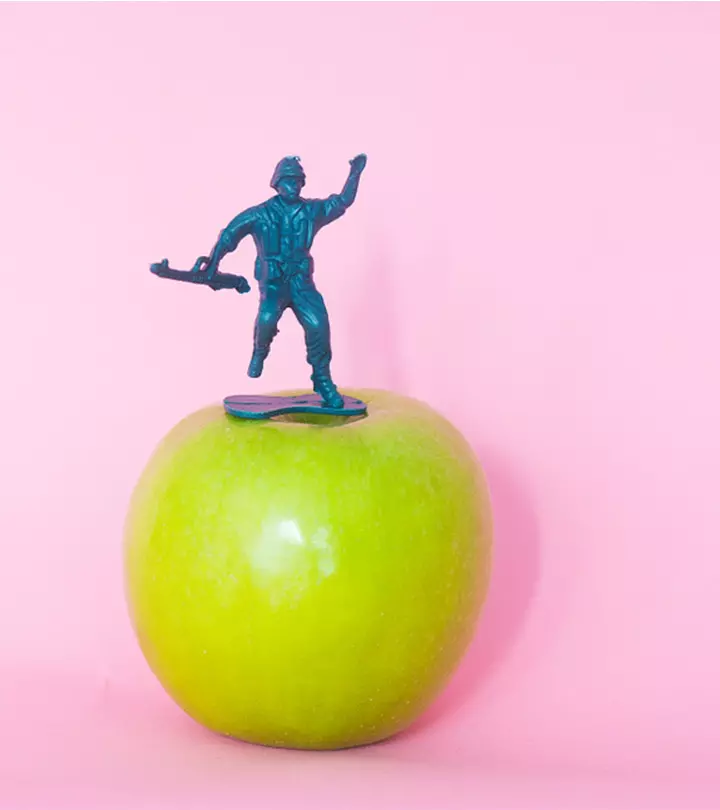
Image: Shutterstock
Military diet substitutes are pre-approved food you can add to your military diet. You can consume about 1000-1400 calories a day on this diet and burn more fat, which helps in faster weight loss. A 3-day military diet with set meal plans will help kick-start your metabolism. The best part is, you can eat whatever you want for the next four days. However, you must stick to low-calorie nutritious foods and focus on healthy eating for a better effect. Military diet substitutes are a convenient option if you are not able to find the foods listed in the diet plan.
Just try the military diet and learn about the substitutes to successfully complete the military diet. So, are you ready to take on this weight loss challenge? Read on to know all the details about why you need these substitutes, which foods can be considered as military diet substitutes, and how to consume them.
In a survey conducted on 5067 adults regarding their approach to weight loss, it was found that 49% would like to reduce or change their diet to reduce weight, and 41% would like to exercise more for weight loss. So it is important to substitute your diet with other healthy options that help in weight loss.
Disclaimer: The Military diet does not adhere to USDA guidelines and hence it is not sustainable for long-term weight loss plans.
In This Article
How Does The Military Diet Work?
The military diet, also known as the 3-day diet, is a brief and highly restrictive weight loss plan that claims to help individuals shed pounds quickly. The diet is structured around a 3-day cycle followed by 4 days of normal eating.
Individuals consume typically around 1,000 to 1,400 calories per day during those three days. Proponents of this diet claim that this cycle of extreme calorie restriction, followed by a brief return to regular eating, may lead to rapid weight loss.
However, the diet’s effectiveness is a subject of debate within the health community, as it primarily relies on calorie reduction rather than sustainable, long-term lifestyle changes.
Moreover, certain dietary suggestions may not be suitable for everyone, making this diet less inclusive. Learn more about this in the section below.
Key Takeaways
- This diet’s primary foods list includes tuna, carrots, broccoli, meat, bread, banana, boiled eggs, tea, coffee, and vanilla ice cream.
- During this 3-day weight-loss diet, you may substitute certain foods as long as the calories remain the same.
- There are certain food swaps permitted in this diet to make it more flexible and possible for everyone to follow.
- The diet does not adhere to the USDA guidelines and hence is not suitable for long term weight loss goals.
Reasons To Make A Food Substitution

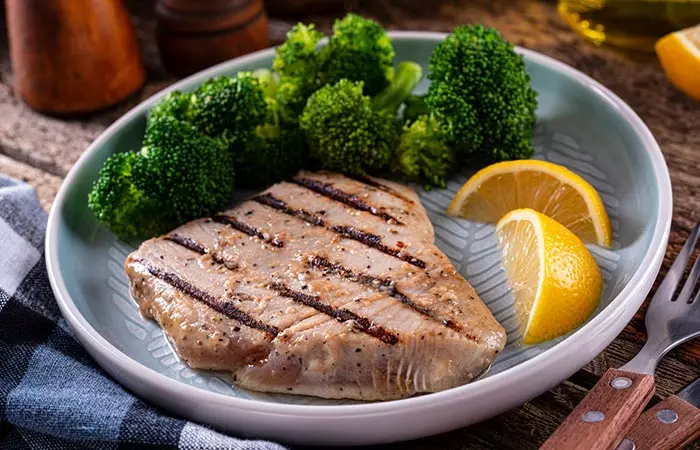
The military diet comes with a detailed meal plan and involves certain food items in particular. The diet includes calorie counting, portion control, and consuming low-carb meals for effective weight loss.
The primary food list is as follows:
- tuna
- broccoli
- banana
- tea
- coffee
- grapefruit
- hard-boiled eggs
- peanut butter
- bread
- meat
- vanilla ice cream
- apple
- cottage cheese
- saltine crackers
- hot dog
- carrots
- green beans
- cheddar cheese
While it might seem like a quick and simple meal plan, some people might not be able to include one or a few of the enlisted food items in their diet due to the below possible reasons.
Diet Habits
Food swaps might be necessary for you if you follow any other diet in tandem or if you lead a vegetarian or vegan lifestyle.
- Vegetarian- no egg or meat products.
- Vegan- no meat, eggs, dairy, or any other food of animal origin.
- Paleo- no whole grains, milk, legumes, or processed foods (1).
- Ketogenic diet – low carbs, high fat (2).
Food Aversion

You might need a food swap simply because you can’t stand the sight or smell of that particular food item. For instance, some people might not like the smell of fish or the taste of any particular fruit.
Megan Christini, a blogger, details her short-lived experience of trying the Military Diet. She claims that it had a very negative impact on her and did more harm than good. She added, “The food I was eating was so plain and boring, and not very tasty. When I finished the three days, the only result was that my stomach was slightly flatter (because I wasn’t full of carbs most likely) (i).” She admits to having reversed back to bad eating habits rather than gaining self-control.
Intolerance And Allergies
When your body is unable to digest certain food groups properly, it leads to allergies and intolerance. You might be allergic to certain food items like nuts or protein or intolerant to lactosei A natural sugar present in milk and milk products. Sometimes hard to digest for people lacking the lactase enzyme in their bodies. in dairy products or gluten in grains (3). According to the American College of Gastroenterology, it is estimated that 15% of adult Caucasians and 85% of adult African Americans are lactose intolerant. Lactose intolerance is prevalent among Asian, Hispanic, Native American, and Jewish descents as well (4).This would urge you to make a better-suited food swap for yourself.
 Did You Know?
Did You Know?Religious Restrictions
Certain religions are known to prohibit the intake of a particular food group or source ( 5). Few are listed below:
- Mormonism- avoids caffeinated drinks like tea or coffee.
- Islam- only allows Halali An Arabic word meaning ‘permissible.’ In relation to food, it usually refers to meat prepared in accordance with Islamic laws. meat items, avoids pork.
- Hinduism – mostly prohibits beef. A big population sticks to the lacto-vegetariani A form of vegetarianism that excludes all animal products and eggs except dairy (like milk, cheese, yogurt, etc.). diet.
- Buddhism – some sects might mandate strict vegetarianism.
- Jainism – Jain people are strict lacto-vegetarians and also avoid root vegetables like onion, garlic, and potatoes.
Health Conditions
Having a prior health concern might restrict you from having a certain kind of food. For instance, people with diabetes are advised to limit their carb intake while if you have a certain heart condition, you might have to avoid food rich in sodium, fats, and cholesterol (6) (7).
According to the American Diabetes Association and the American Heart Association, a person’s risk for heart disease can be reduced by limiting foods high in saturated fat, trans fatty acids, and cholesterol, as well as reducing their intake of salt and alcohol (8).
Health Considerations
The restrictive nature of the diet may lead to nutrient deficiencies, fatigue, and muscle loss in the long run.
Do consult a healthcare professional before starting any new diet, especially one as restrictive as the military diet. They can assess your individual health needs and provide personalized advice.
Additionally, it is important to listen to your body and stop the diet if you experience any adverse effects, such as dizziness, fatigue, or irritability.
Adverse Medicinal Reactions
Some medications might also interact negatively with certain food groups.
For example, grapefruit which is included in the military diet is known to react adversely to anti-anxiety and blood pressure medications (9).
Given the possible reasons above, you might need to or prefer a food swap more suitable for yourself. Certain food swaps are allowed in the military diet to make it more flexible and doable for everyone as per their needs and preference. Further ahead, let’s see how you can incorporate food substitutions in the military diet.
How To Substitute Foods On The Military Diet
The military diet allows certain food substitutions that are pre-approved.
However, it doesn’t provide any detailed measurements for the alternative food, only stressing the number of calories to be equal.
- Use The Military Diet Substitutes Only If Needed
The military diet has a set meal plan because it works best that way. It is very particular about the food and calories included. While all the food swaps are officially approved, you must not go for one unless you need to. Replace a food item only when you have no other option. Also, do not go for all substitutions at a time or it might otherwise hinder your weight loss plans ultimately.
- Measure And Match In Calories, Not The Size

When you are opting for a military food substitution make sure to match it in an equal amount of calories and not by size. While two fruits might seem similar in size and weight, most often than not, they won’t be the same in calories. For the enlisted food swaps to work as intended, the total calories of both the food items should be the same. Also, don’t be tempted to make a food substitution just because they belong to the same food group. For instance, while pork is also high-protein meat, it is not the best substitute for tuna because it’s high in its fat content as well.
- Choose The Best Suitable Option
You might find more than one option for each food item on the military diet plan.
While each can be measured and matched up in calories, not all of those would provide the same nutritional benefits as the original one. Out of the ones suitable for you, make sure to opt for the most nutritional food swap.
Similarly, while most meat products on the diet can be replaced with other meats, dairy, or plant-based protein sources, be mindful that vegan options might not match up in the protein content when we compare the calories (10).
To help you get started and make things easier for you, we have listed below a complete 3-day meal substitution plan.
3-Day Military Diet Substitution List
Day 1
Breakfast
- Half a Grapefruit
Substitute
You can swap it with any other fruit (preferably not orange) that gives you around 41 calories, 1.4 grams of fiber, and 44 mg of vitamin C as contained in half a grapefruit.
- A slice of bread toast
Substitute
If you don’t prefer bread, you can have ¼ cup of yogurt with ½ teaspoon of flax seeds, ⅛ cup of sunflower seeds, half a protein bar, whole grain tortilla, and ½ a cup of whole-grain cereal or two rice cakes would also suffice instead.
- 2 tablespoons of peanut butter
Substitute
The same amount of sunflower seed/ pumpkin/soy/almond/cashew butter, hummus, or bean dip can be used. Two tablespoons of plain sunflower seeds would also work instead.
- A cup of tea or coffee (with caffeine)
Substitute
You can opt for green tea instead of coffee. Hot chocolate (sugar-free) also has some caffeine to replace coffee or tea. In case you prefer energy drinks, then Red Bull (sugar-free) can also provide 76 mg of caffeine. Any other caffeinated drinks might have more calories than allowed.
 Quick Tip
Quick TipLunch
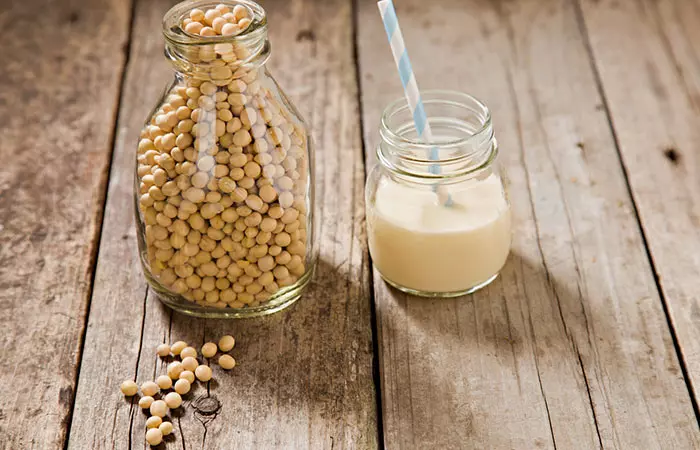
- Half a cup of tuna
Substitute
You can have grilled tuna that’s equal in size as ½ or 1 cup of canned tuna. Though fish is the most preferable option in place of canned tuna, you can also have any other form of lean meat that adds up to the same number of calories. Vegetarians can have tofu, cottage cheese, or almonds while vegans can opt for half an avocado with 2 tablespoons of hummus.
- One slice of bread/toast
Substitute
One tortilla or two rice cakes can be taken in place of bread. Alternatively, you can have ¼ cup of yogurt with ½ teaspoon of flax seeds. ⅛ cup of sunflower seeds, ½ a protein bar, or ½ cup of whole-grain cereal, would also work.
- One cup of tea or coffee (with caffeine)
Substitute
Any kind of regular tea or green tea can be taken. Sugar-free versions of hot chocolate or Red Bull can also be included instead.
Dinner
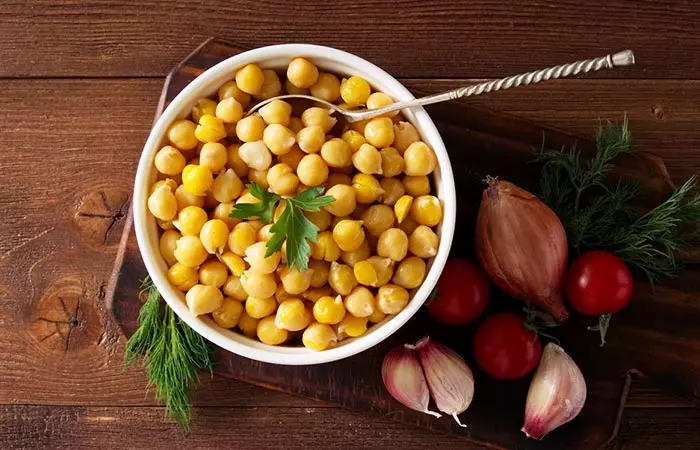
- 3 oz of meat (any type)
Substitute
In case you can’t have meat, you can substitute the same with beans, lentils, tofu, or portobello mushrooms.
- A cup of green beans
Substitute
You can replace beans with the same amount of calories from tomatoes, lettuce, spinach, or any other green leafy vegetables.
- Half a banana
Substitute
In place of bananas, you can have a cup of ripe papaya, 2 kiwis, or even 2 apricots. Apple sauce, plums, and grapes amounting to the same calorie intake would also work instead.
- One small apple
Substitute
Plums, pears, grapes, peaches, zucchini, or dried apricots can be had in place of an apple.
- A cup of vanilla ice cream
Substitute
If you are restricted from eating ice cream, you can have a cup of any yogurt, (preferably fruit-flavored) or even apple juice. Dairy-free ice cream or flavored almond milk (except chocolate) would also work as a vegetarian or vegan option.
Day 2
Breakfast
- One whole egg
Substitute
You can have one chicken wing or 2 slices of bacon. Alternatively, if you are vegetarian, ¼ cup of seeds or nuts or a cup of milk can be taken. Half a cup of baked beans can be had as a vegan replacement.
- A slice of toast
Substitute
You can have a half cup of whole-grain cereal, ⅛ cup of sunflower seeds, 1/4 cup of yogurt with ½ teaspoon of flax seeds, or even half a protein bar. You can also replace toast with a tortilla or two rice cakes.
- Half a banana
Substitute
1 cup of papaya, 2 kiwis, or 2 apricots would work. You can also replace it with plums, grapes, or apple sauce as per your preference.
Lunch
- A cup of cottage cheese
Substitute
You can have eggs, ham, cheddar cheese, plain Greek yogurt, or ricotta cheese as a military diet substitute for cottage cheese. Tofu can be had as a non-dairy substitute, as long as it’s an equal amount of calories. For vegans and vegetarians, 1 cup of unsweetened soy/almond/hemp milk and 2 tablespoons of hummus can be used.
- One egg (hard-boiled)
Substitute
½ an avocado can be taken in place of an egg.
- Five saltine crackers
Substitute
You can replace saltine crackers with rice cake. Alternatively, any other kind of cracker would also work, provided they match up the calories. You can also have the same calorie amount of couscous or quinoa instead.
Dinner
- Two hot dogs (with no buns)
Substitute
Non-vegetarians can have turkey/soy/tofu dogs, deli meat, luncheon meat, bratwurst, or balogna. Vegetarians can have lentils, beans, or portobello mushrooms. Any other meat along with the fat would also work as long as the calories remain the same. The same applies to tofu as well.
- One cup broccoli
Substitute
Any green vegetable, for instance, cauliflower, Brussels sprouts, asparagus, or spinach can be taken.
- Half cup of carrots
Substitute
Beets, celery, squash, bell pepper, and parsnip amounting to the same number of calories can be used in place of carrots.
- Half a banana
Substitute
2 kiwis, a cup of papaya, or 2 apricots can replace ½ a banana. Plums, grapes, or apple sauce would also work.
- 1/2 cup of vanilla ice cream
Substitute
A cup of yogurt (fruit-flavored) or apple juice can be used. While almond milk in vanilla, strawberry, or banana flavor is a good non-dairy option, any ice cream that’s made dairy-free would work as a vegan option instead.
• Day 3
Breakfast
- 5 saltine crackers
Substitute
One saltine cracker has 13 calories. You can replace it with the calorie-correct amount of couscous or quinoa, or even rice cakes would work instead. In case you are having any other cracker, gluten-free or otherwise, make sure to match up to the calories.
- 1 slice of cheddar cheese
Substitute
You can have egg or ham instead with the same amount of calories. Cottage cheese also works well or you can substitute with non-dairy substitutes like soy milk, soy cheese, or tofu as well or ham.
- A small apple
Substitute
You can replace a small apple with peaches, plum, grapes, pears, dried apricots, or zucchini, as per the equal calorie intake.
- Lunch
- 1 egg (hard-boiled)
Substitute
2 slices of bacon or one chicken wing can be taken in place of an egg. A cup of milk, 1/4 cup of seeds or nuts, 1/2 avocado, or 20 almonds would also suffice instead.
- 1 slice of toast
Substitute
½ a cup of whole-grain cereal, ⅛ cup of sunflower seeds, ½ of a high-protein bar, or ¼ cup of yogurt with ½ teaspoon of flax seeds can replace a slice of toast. A tortilla or two rice cakes can also be had instead.
Dinner
- One cup of tuna
Substitute
½ cup of canned chickpeas can be used as a military diet tuna substitute.
- Half a banana
Substitute
You can have 2 kiwis, 2 apricots, or a cup of papaya. Grapes, plums, and apple sauce would also work.
- One cup of vanilla ice cream
Substitute
Apple juice or a cup of any yogurt (fruit-flavored) can be taken. Another good non-dairy option would be flavored almond milk (other than chocolate) For vegetarians and vegans, any ice cream that is made dairy-free can be had.
Discover military diet, a proven way to shed up to 10 lbs in just 3 days. Watch the video to learn about food substitutions, vegan options, and get ready with grocery lists.
Infographic: Effective Substitutes For The Food Items In The Military Diet
The military diet is a 3-day rapid weight loss plan that includes food items that are fairly easily available and relatively appetizing. But some people may be averse to some of these foods due to their health conditions or personal preferences. If you are one of them, don’t worry! We have listed a range of alternatives for you in the following infographic. Check it out!
Some thing wrong with infographic shortcode. please verify shortcode syntax
Summary
The military diet, which is followed for three days, comprises nutrient-rich yet low-calorie foods that help shed some pounds quickly. You can replace certain foods that you don’t like or are allergic to with some healthy military diet alternatives. However, there is one condition — the substitutes must match in calories. For example, a cup of papaya, two kiwis, and two apricots can replace half a banana. Similarly, one cup of broccoli can be substituted with Brussels sprouts, cauliflower, spinach, or asparagus. Unless necessary, do not go for substitutes, as the standard diet works best for effective weight loss. Moreover, you must consult a registered dietitian before starting any diet, especially those that promise quick weight loss.
Frequently Asked Questions
Can you drink Coke Zero during military diet?
While coffee and tea are allowed, soda, milk, or alcohol is not allowed on a military diet.
Can you use stevia on the military diet?
Yes, you can use plant based sweetener or stevia on the military diet.
What happens if you do the military diet for a month?
Nutrition experts strictly advise against doing the military diet for extended periods of time. The diet is designed for 3 days only. Following the diet beyond that can lead to a calorie deficiency, unhealthy eating habits, and other unfavorable health concerns.
Illustration: Military Diet Substitutes To Revamp Your Routine
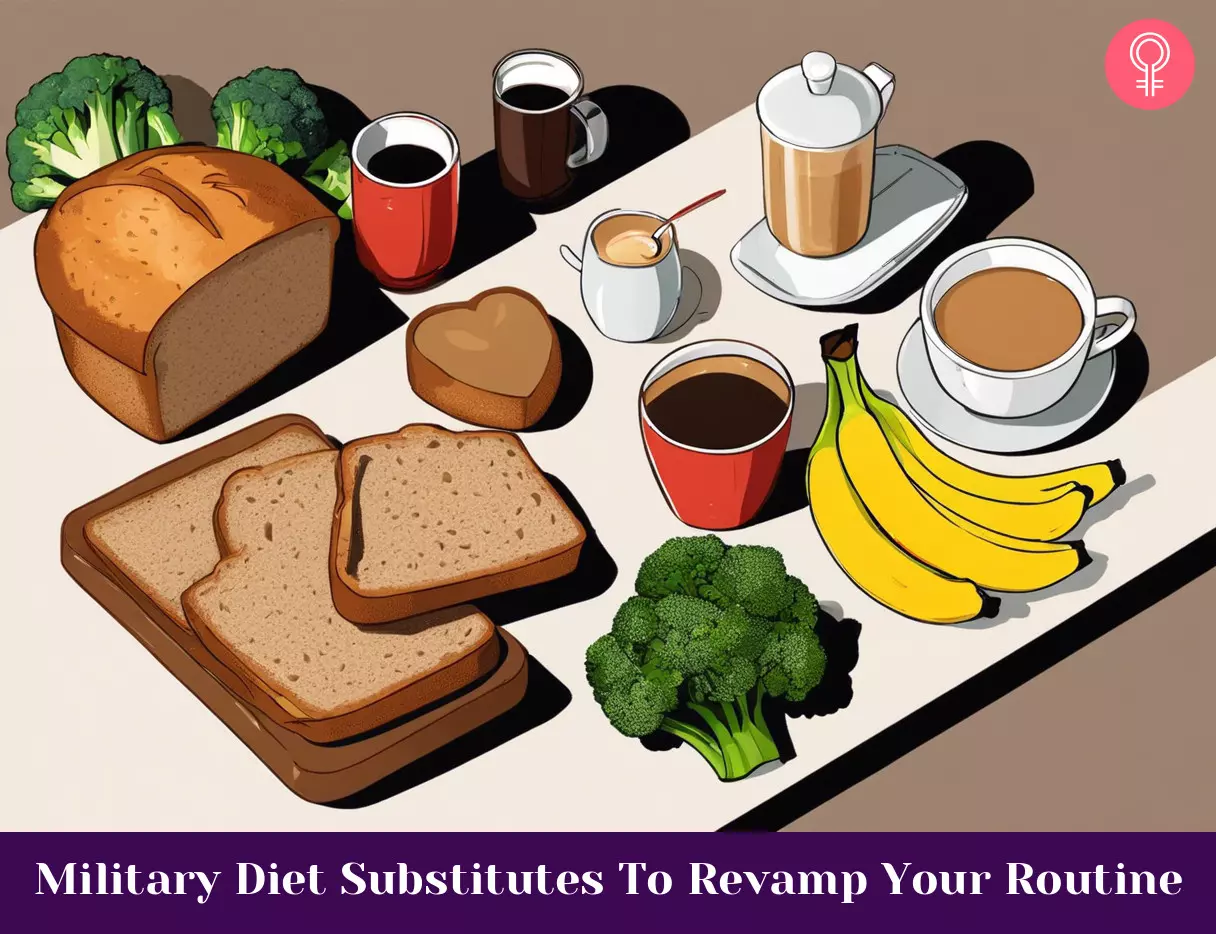
Image: Stable Diffusion/StyleCraze Design Team
Personal Experience: Source
StyleCraze's articles are interwoven with authentic personal narratives that provide depth and resonance to our content. Below are the sources of the personal accounts referenced in this article.
i. My Experience with “The Military Diet”https://thelifeofahybrid.wordpress.com/2014/08/12/my-experience-with-the-military-diet/
References
Articles on StyleCraze are backed by verified information from peer-reviewed and academic research papers, reputed organizations, research institutions, and medical associations to ensure accuracy and relevance. Read our editorial policy to learn more.
- Paleo Diet – A Review
https://www.researchgate.net/publication/326841191_Paleo_Diet_-_A_Review - Ketogenic Diet
https://www.ncbi.nlm.nih.gov/books/NBK499830/ - Food Allergies And Intolerances: A Clinical Approach To The Diagnosis And Management Of Adverse Reactions To Food
https://www.sciencedirect.com/science/article/pii/S1542356521000756 - Lactose Intolerance
https://gi.org/topics/lactose-intolerance-in-children/ - How Personal Factors Including Culture And Ethnicity Affect The Choices And Selection Of Food We Make
https://ispub.com/IJTWM/1/2/11779 - Dietary Carbohydrate Restriction As The First Approach In Diabetes Management: Critical Review And Evidence Base
https://www.sciencedirect.com/science/article/pii/S0899900714003323 - Cardiovascular Disease Prevention By Diet Modification: JACC Health Promotion Series
https://www.ncbi.nlm.nih.gov/labs/pmc/articles/PMC6100800/ - Weight management through lifestyle modification for the prevention and management of type 2 diabetes: rationale and strategies. A statement of the American Diabetes Association the North American Association for the Study of Obesity and the American Society for Clinical Nutrition
https://academic.oup.com/ajcn/article/80/2/257/4690305?login=false - Grapefruit Juice And Some Drugs Don\\’t Mix
https://www.fda.gov/consumers/consumer-updates/grapefruit-juice-and-some-drugs-dont-mix - Intake And Adequacy Of The Vegan Diet. A Systematic Review Of The Evidence
https://www.sciencedirect.com/science/article/pii/S0261561420306567 - Impact Of Lifestyle On Health
https://www.ncbi.nlm.nih.gov/labs/pmc/articles/PMC4703222/ - Fad Diets: Lifestyle Promises And Health Challenges
https://www.researchgate.net/publication/310474556_Fad_Diets_Lifestyle_Promises_and_Health_Challenges
Read full bio of Aakriti Arora
Read full bio of Varsha Patnaik
Read full bio of Arshiya Syeda
Read full bio of Payal Karnik






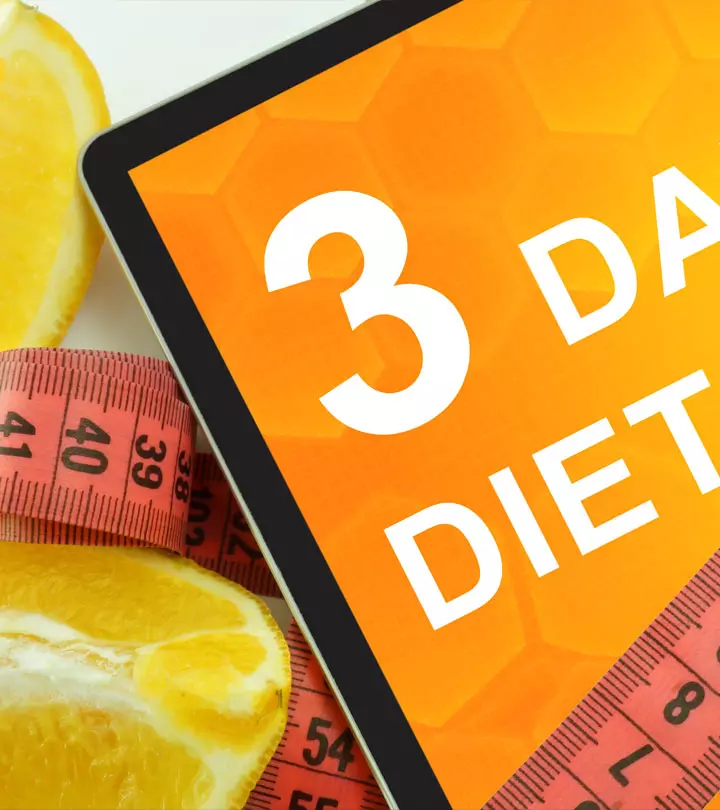


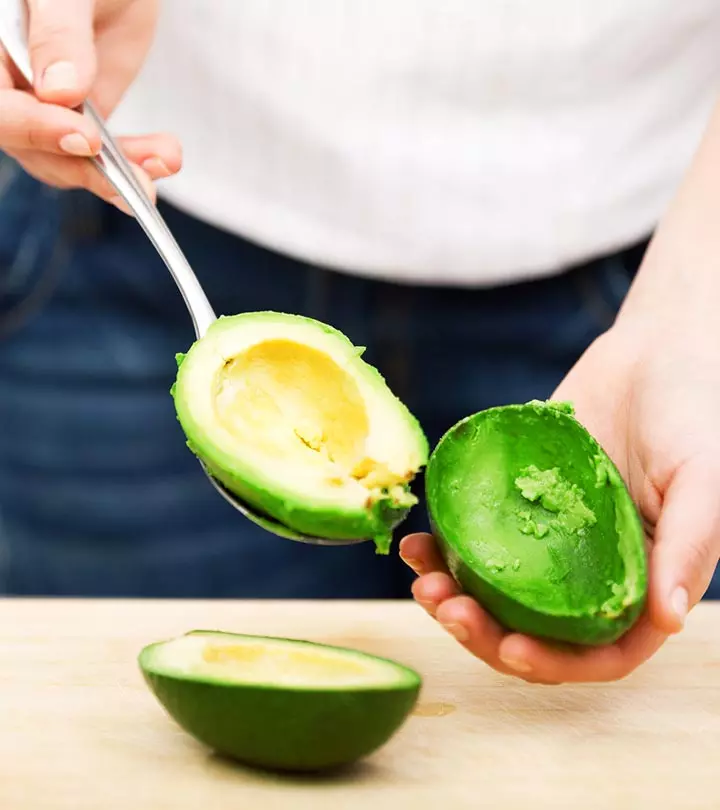
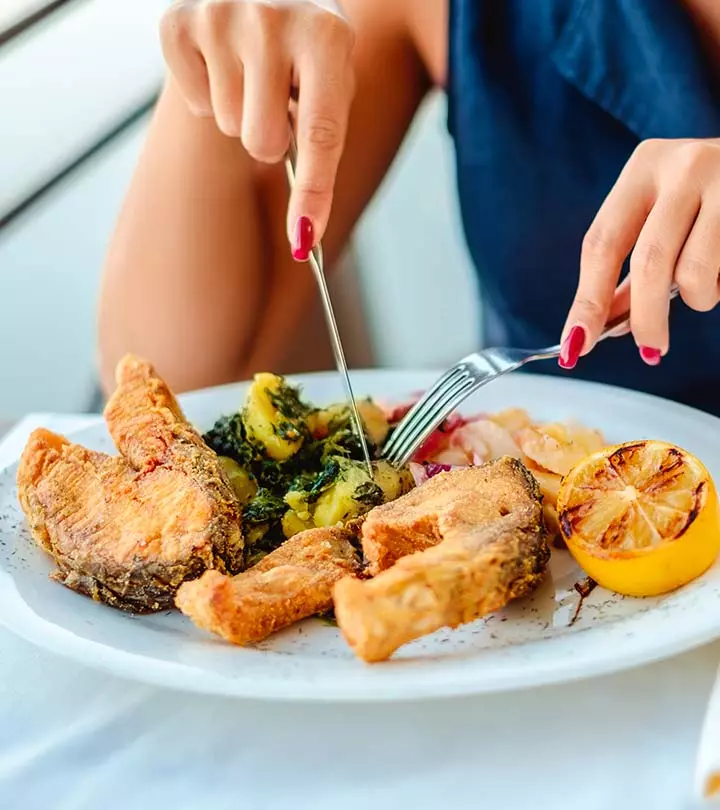

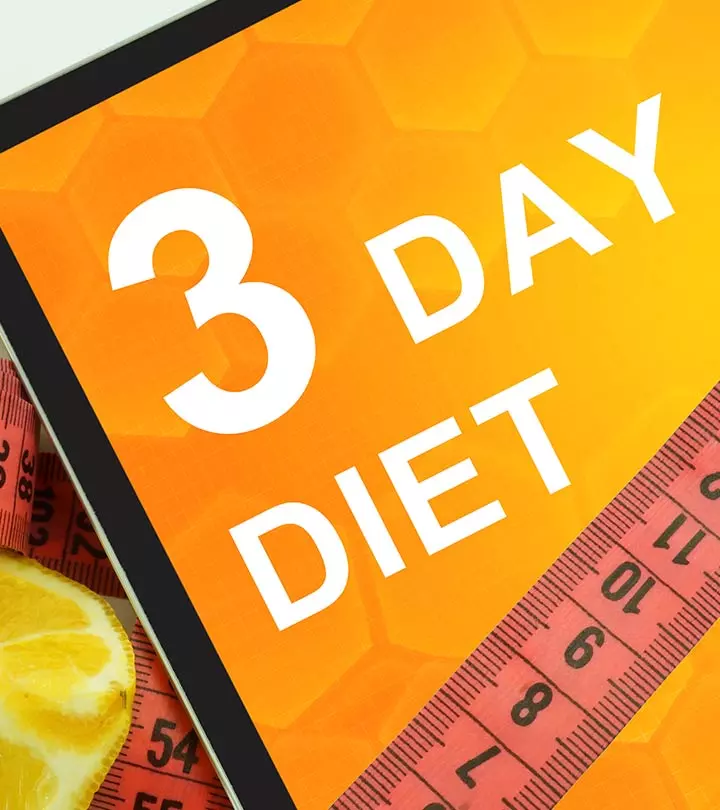
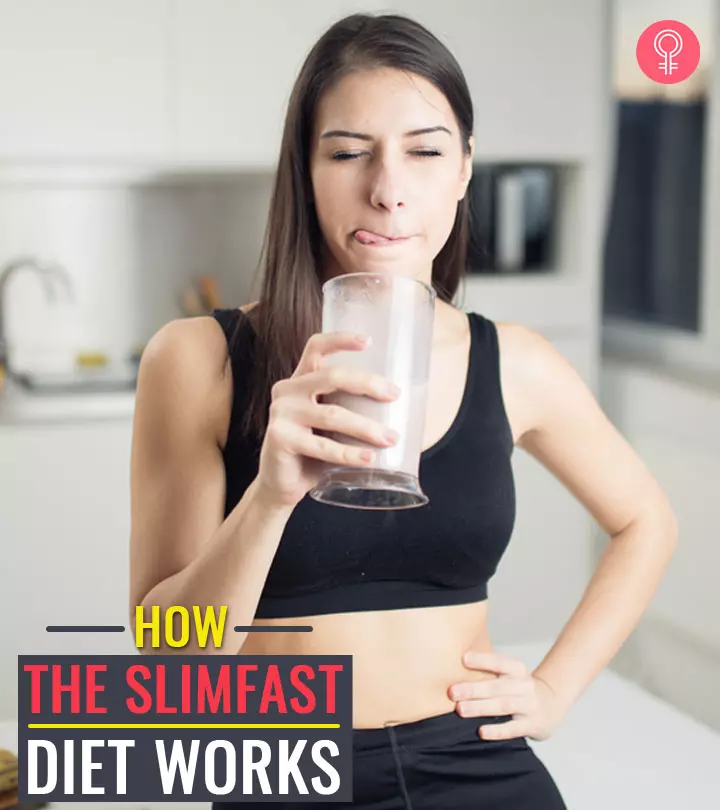
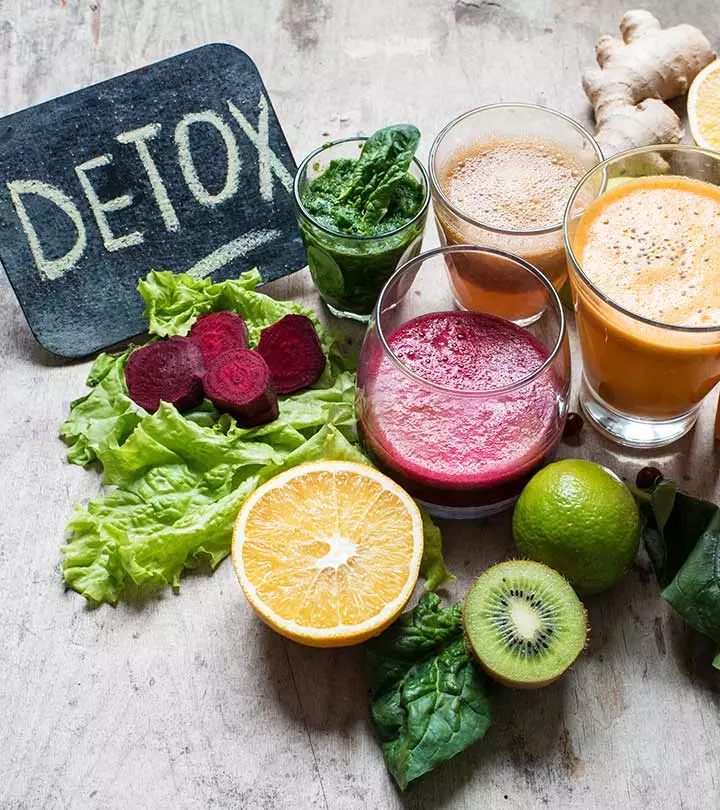


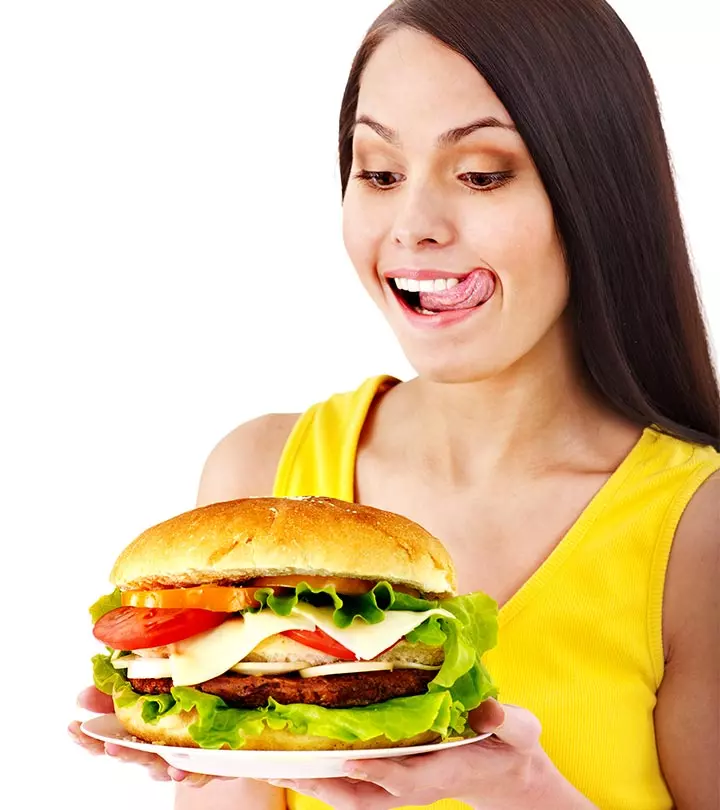



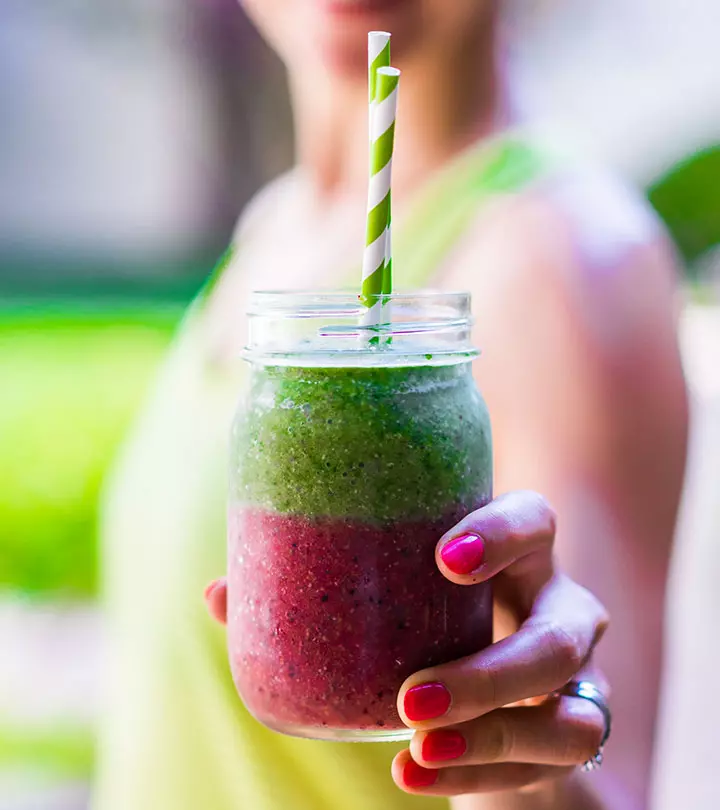
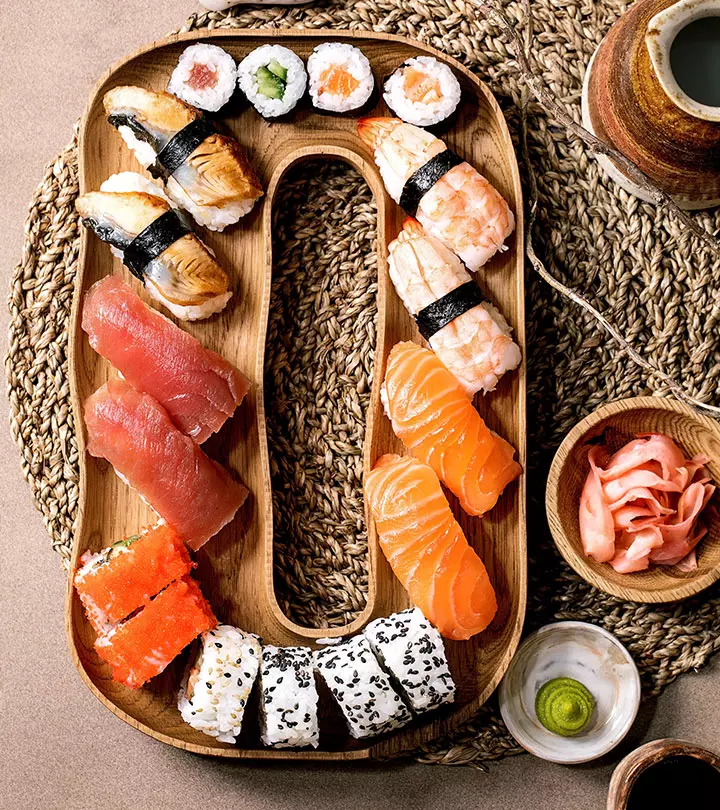
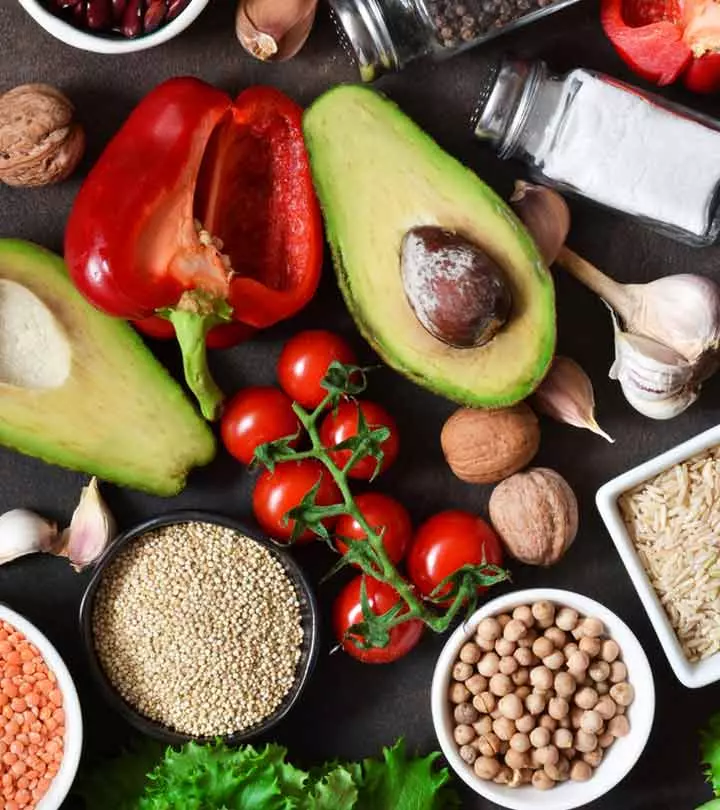


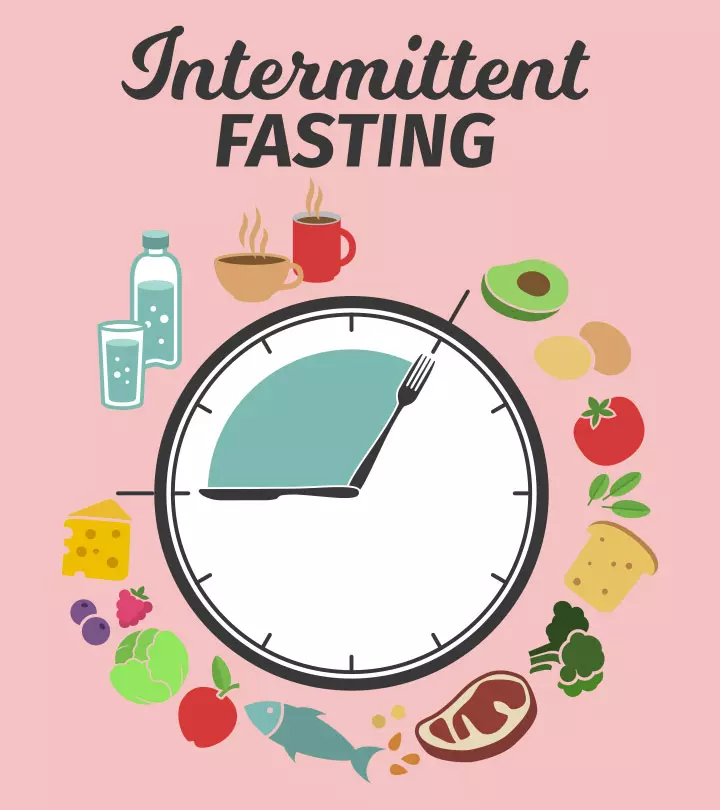
Community Experiences
Join the conversation and become a part of our empowering community! Share your stories, experiences, and insights to connect with other beauty, lifestyle, and health enthusiasts.